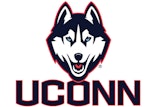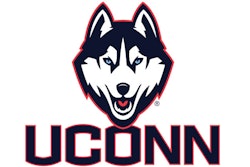Whether stipulated with the best of intentions or as mere window dressing, incentives in coaches' contracts tied to academic performance could potentially get a school in big trouble with the U.S. Department of Education.

Whether stipulated with the best of intentions or as mere window dressing, incentives in coaches' contracts tied to academic performance could potentially get a school in big trouble with the U.S. Department of Education.
New DoEd regulations that took effect July 1, 2011, caused quite a stir among universities and their athletic departments when it appeared that any incentive payment tied to "success in securing enrollments or the award of financial aid" was no longer allowed by the federal government. "The definition that the Department of Education gave for that was so broad that you could drive a truck through it," says attorney Jennifer Harper, founding member of the Collegiate and Professional Sports Industry Group at Jackson Lewis LLP in Washington, D.C. "Initially when the regs came out, they just swept the entire university arena. Certain incentive compensation wound up being banned across the board, and athletic personnel were expressly included in the ban under these new regulations. Suddenly, we had to say, 'You have to revise your contracts. You need an amendment. You can't pay your coaches for this sort of stuff.' "
In a subsequent "Dear Colleague" letter, the DoEd clarified that incentives based on team grade-point average or the NCAA's Academic Progress Rate, among other measures, were exempt. But confusion still persists. For reasons Harper can't explain, "The one thing that the Department of Education left out was graduation rates and program completion rates, and that has caused the confusion," she says.
Harper, whose firm advises colleges and universities, is still wary of the regulations' potential ramifications, which include the government recouping federal financial aid from an institution it finds noncompliant. (Back in 2001, it put one vocational institution out of business by doing just that, to the tune of $187 million.) "I continue to be conservative, even if some universities that have reviewed this have taken a more liberal approach simply because the Department of Education has not expressly come out and said, 'Oh, yeah, and grad rates are banned,' " Harper says. "I have a very different view of that. I think you have to take the grad rates out. There's a very specific reason for that. In the original regulation, the Department of Education expressly stated in its preamble and later in its comments that anything that's based on graduation rates or program completion rates is specifically tied to securing enrollment, and that's banned. So, we can't really say at this point that grad rates are okay. The Department of Education has not taken any action yet telling us that grad rates are fine."
Just how prevalent is such contract language? Data compiled at AB's request by Winthrop Intelligence (www.winthropintelligence.com) finds that six head coaches among those leading the top-20 RPI football programs last season (including three in the top five) have clauses in their contracts outlining compensation bonuses specifically tied to graduation success rates. In both men's and women's basketball, three top-20 RPI coaches had such contract incentives.
According to Winthrop Intelligence director of sales and marketing Kevin Barefoot, payouts hinge on a variety of achievements. One Southeastern Conference football coach is promised $50,000 if his team's GSR ranks among the top third in the league. Another SEC coach gets $150,000 if his team posts a GSR of 75 percent or higher. A third contract awards a coach $44,000 for a 65 percent GSR on up to $110,000 for 100 percent. In men's and women's basketball, typical incentives range from $10,000 to $75,000 for GSR scores ranging from 70 to 100 percent. "Across 30,000 coaches in the Win AD database, we see that contracts are becoming more complex and creative," Barefoot says. "This includes bonus compensation for academic performance by student-athletes."
No one can say for sure just how impactful academic-related contract incentives actually are. Barefoot refuses to speculate on the effectiveness of Winthrop clients' contractual strategies, given the myriad variables potentially at play regarding a given team's academic performance. Certain academics, meanwhile, have their doubts.
"High-profile head coaches' bonuses are primarily public-relations vehicles," says University of North Carolina professor Richard Southall, director of the College Sport Research Institute. "These bonuses are similar to fines levied by professional leagues on players. We did some research on this and found such fines - because they were so small in comparison to player salaries - were irrelevant to player behavior."
Harper doesn't share the cynicism. "I don't want to call it a PR thing, because I do believe that universities very strongly feel that education comes first," she says. "But we do understand the interplay, especially at the Division I level, between the players, the sport, the money and the education. That's a balancing act that these universities have to engage in, and I think incentives are part of that. I think those incentives are in there precisely to motivate the athletic department and the school and to send a message that they have to be student-athletes. They can't just be athletes."
"We need to put this into perspective," says Jason Lanter, a Kutztown University professor whose term as president of the Drake Group, a collegiate athletics watchdog organization, ended July 1. "Yes, the bonuses are a lot of money at face value but quite minimal when you look at the bonus as a percentage of base salary. Look at Urban Meyer's contract at Ohio State: a base salary of $4 million and a $100,000 bonus for meeting APR requirements. The $100,000 is a lot of money, but it is only a 2.5 percent bonus. However, if Ohio State wins its division, the Big Ten championship, and plays for the national championship, Coach Meyer earns a $400,000 bonus, or 10 percent of his salary. That's a lot of incentive to focus on field performance rather than classroom performance."
Southall believes it would take significantly greater monetary incentive to move the academic success metrics. Worse, he theorizes that academic-based incentives could actually foster clustering (the concentration of student-athletes within a given major), academic improprieties and increased numbers of special admissions. "I don't think head coaching incentives or bonuses in isolation have led to increases" in graduation success rates, he says. "I think the area to be examined is how prevalent such bonuses are among athletic-academic support staff."
Indeed, liability doesn't necessarily end with the head coach's contract, according to Harper. "That's why I tell people, 'You've got to dig deeper.' If you have an assistant coach who's going out there and recruiting, or an assistant coach who's influencing admissions personnel regarding a player, that's where I need you to start looking. If any athletic personnel are out there engaging in recruiting that leads to securing enrollment, they're susceptible."
If, as the regulations originally intended, all incentive compensation were to disappear, would anyone notice? Probably not the coaches who hold the contracts. "If we were to ban all incentive compensation, not just graduation rates, but the APRs, what's really going to happen? The reality is probably going to be that coaches negotiate that compensation into the contract somehow in some other way," Harper says.
For now, Harper strongly suggests that schools at least eliminate language that specifically mentions graduations rates - lest they potentially face the wrath of government regulators. "When we pull it all together, you get two sides of the same coin. They say team academic performance is okay, but the flip side is graduation rates don't appear to be okay at all," she says. "And if I were a university, I would look at that contract closely, and I would eliminate grad rates. Just eliminate them. Nobody wants to be a test case before the Department of Education on whether they comply with the incentive compensation regulations, because the upshot of that could be severe."





































